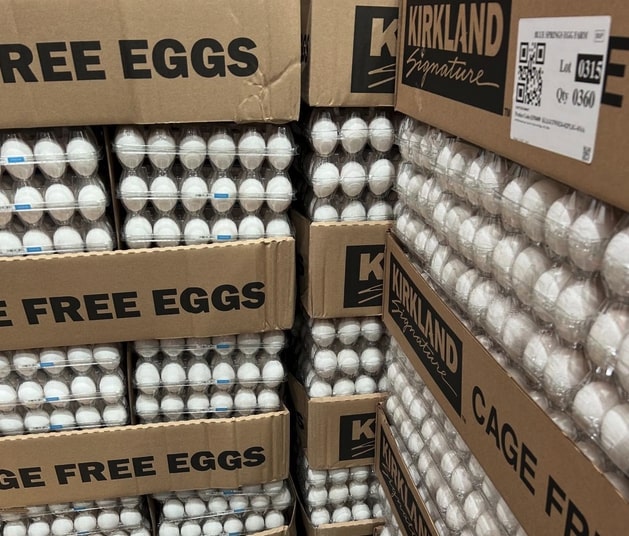Falling Egg Prices: Good News for Shoppers
Inflation's impact on grocery budgets is easing, with egg prices finally taking a tumble. This welcome development offers relief to consumers and a glimpse of potential wider economic shifts.
The rising cost of eggs has been a significant pain point for many households over the past year. Fueled by avian flu outbreaks, inflation, and increased feed costs, egg prices soared, impacting everything from breakfast tables to bakery shelves. But recent data paints a more optimistic picture: egg prices are falling, offering a much-needed break for shoppers grappling with persistent inflation.
What's Driving the Egg Price Drop?
Several factors contribute to this welcome decline in egg prices:
-
Increased Egg Supply: Avian flu outbreaks, while still a concern, are less severe than in previous periods. This, combined with increased flock sizes on many farms, is leading to a greater supply of eggs entering the market. Increased production naturally pushes prices downward.
-
Reduced Feed Costs: The price of chicken feed, a significant component of egg production costs, has also begun to ease. This decrease in input costs allows producers to lower their selling prices without significantly impacting their profit margins.
-
Easing Inflation (Slightly): While inflation remains a concern globally, recent data suggests a slight moderation in some areas, including the cost of agricultural products. This overall economic shift is helping to alleviate pressure on egg prices.
-
Increased Competition: As more producers enter the market or increase their output, competition intensifies, leading to lower prices for consumers.
Beyond the Price Tag: A Broader Economic Indicator?
The fall in egg prices is more than just good news for your grocery bill. It could also serve as a positive indicator of broader economic trends. Decreasing food prices, even in a specific sector like eggs, can signal a potential easing of inflationary pressures. Economists will be watching closely to see if this trend continues across other food groups.
How to Maximize Savings on Eggs
While egg prices are falling, savvy shoppers can still stretch their budget further:
-
Buy in Bulk: Purchasing larger quantities of eggs can often lead to lower per-unit costs, especially if stored properly.
-
Shop Around: Compare prices across different grocery stores and retailers to find the best deals. Online grocery shopping often allows for easy price comparison.
-
Consider Alternatives: While eggs are a versatile ingredient, explore alternative protein sources like beans, lentils, or tofu to diversify your diet and potentially lower costs.
-
Utilize Coupons and Discounts: Many grocery stores offer discounts or coupons on eggs, especially when supplies are plentiful. Check your local flyers and grocery apps.
The Future of Egg Prices: What to Expect
Predicting future egg prices with certainty is challenging, as several unpredictable factors remain at play. However, the current downward trend suggests some respite for consumers. Continued monitoring of avian flu outbreaks, feed prices, and broader economic conditions will be crucial in determining the long-term trajectory of egg prices.
Looking ahead, while a complete return to pre-inflation prices may take time, the current decline in egg prices provides a welcome break for budget-conscious shoppers.
Related Articles:
- [Link to an article on overall food inflation]
- [Link to an article on the impact of avian flu on food prices]
- [Link to an article on smart grocery shopping tips]
Keywords: Egg prices, falling egg prices, cost of eggs, grocery prices, inflation, avian flu, food prices, egg supply, consumer prices, economic indicators, grocery shopping tips, budget-friendly meals, saving money on groceries.
